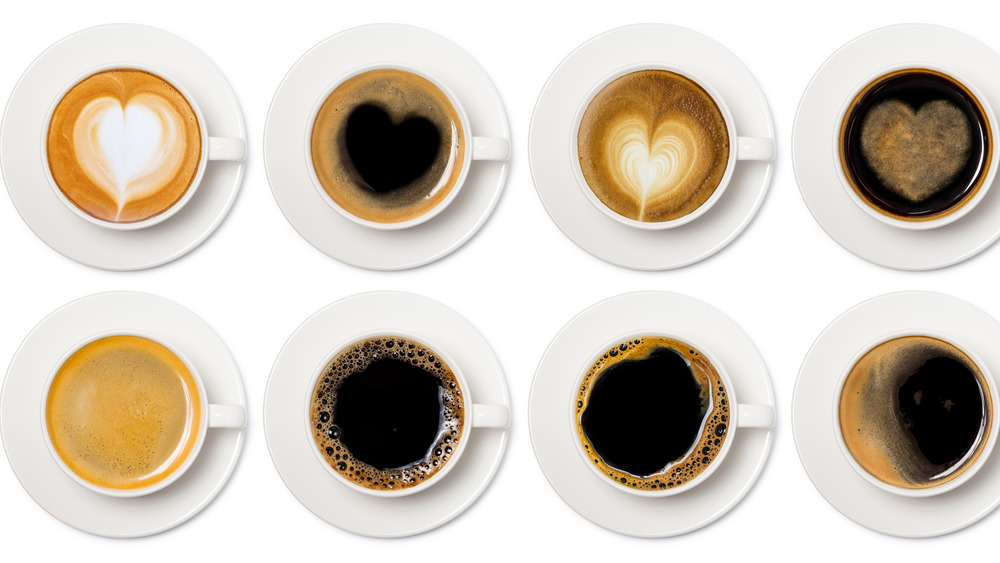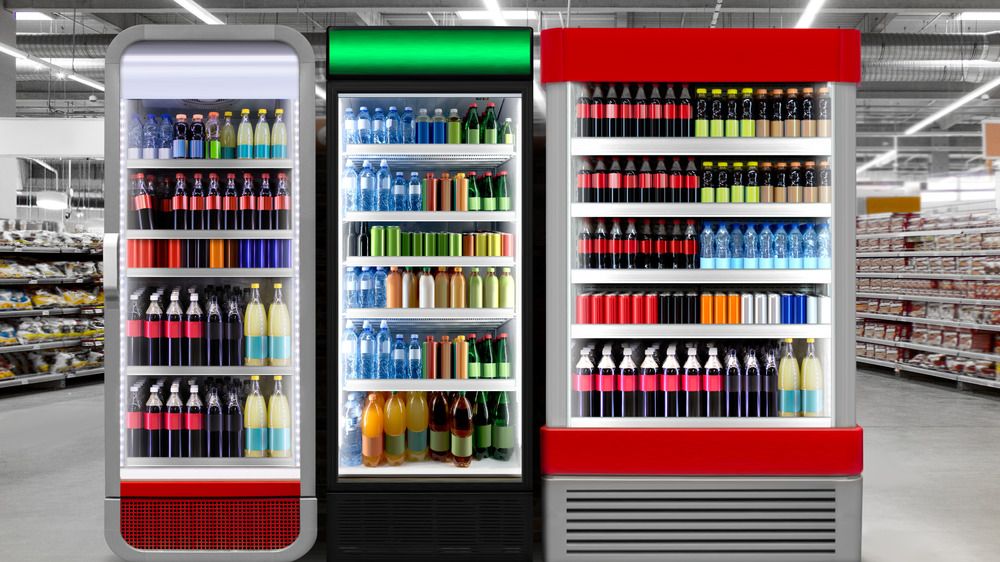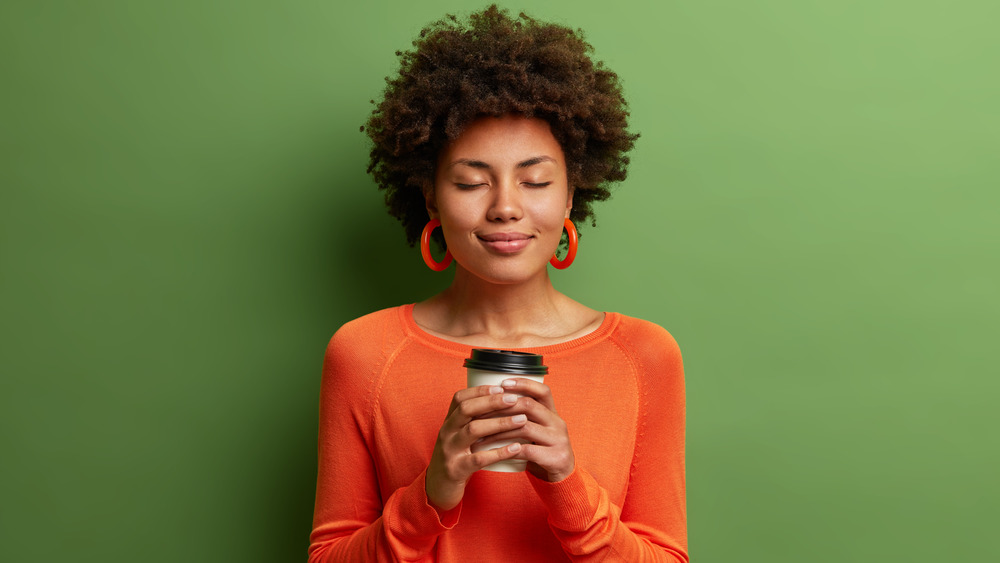This Is When You Should Have Your First And Last Bits Of Caffeine Of The Day
For many, caffeine is a way of life, especially in our hectic day-to-day work routines. According to Science Direct, more than eighty-five percent of people drink caffeine daily, with most choosing to pick one of their menu favorites from a local coffee haven. Coffee especially is often paired with our mornings as we drag ourselves out of bed to carpools and early morning meetings. But you may be surprised to learn that CNBC Make It revealed that your morning cup of Joe is not necessarily the best time to indulge in the caffeine pick-me-up.
In fact, CNBC reported that the best time for the beverage treat might be after we have been awake for a few hours. Laura Cipullo, who is a registered dietitian, spoke with the news source to inform viewers that drinking caffeine in the morning can often cause you to feel jittery, saying, "Definitely limit coffee when you first wake up" (via CNBC Make It). So when is the best time to get that hit of caffeine as you begin your day and as it comes to an end?
Caffeine acts like a drug
When it comes to the age-old question of when you should stop ingesting caffeine, Well + Good believes it all has to do with how each person reacts to the substance. Well + Good spoke with Dan Reardon, MD, who has made it his life's work to study the effect of coffee on different people. He said it all depends on "[t]he speed at which you metabolize caffeine," since it "creates a natural cut off point through the day."
But Kids Health defines caffeine as a stimulant and considers it a drug because it stimulates the central nervous system. The use of caffeine, especially in beverages such as tea, coffee, or energy drinks, motivates the brain, helping you stay more alert and prevent the feeling of being tired. But too much of a good thing, such as relying on caffeine, can be seen as a dependency. The Sleep Foundation admitted that there are small benefits to taking in caffeine, but overuse can lead to serious sleep issues for you, so it is best to listen to your body so you know your own particular cut-off time.
Good to the last drop
According to the Huffington Post, the popular stimulant has high amounts of nutrients and antioxidants. Studies showing that caffeine can help lower the risk of developing type 2 diabetes and Alzheimer's disease, but it is still important not to overdo it (via Huffington Post). If you are looking to optimize your caffeine's productivity within your day, there are a few simple tips you can abide by. One would be to make sure you do set yourself a cut off time and stick with it. You can also try to limit the number of cups you drink a day.
If you are like so many of us who don't think you can stop cold turkey, CNBC Make It suggests that you at least try to push back your first cup of the day by an hour. All of the outlets tended to agree on not having caffeine in the evening or before bed since the stimulant is a known factor when it comes to disrupting the sleep cycle. If you take the time to understand how your body processes caffeine, you will be right on track to learning how to best enjoy that warm chai tea latte or venti coffee without any of the harmful side effects. So don't fret, you can still enjoy your coffee or caffeine ritual, just within moderation.


